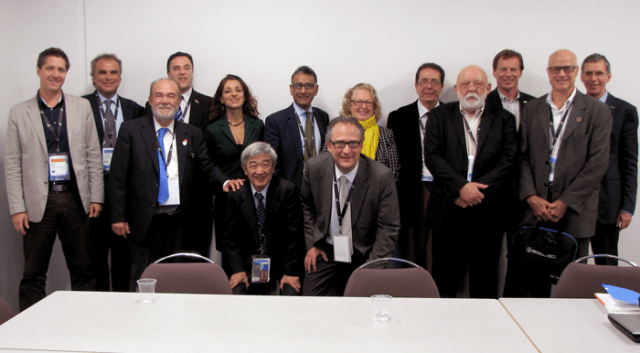
A new survey unveiled at the International Summit of Cooperatives in Quebec examines how co-operatives and mutuals are boosting innovation and access worldwide.
The study, carried out by Jean-Pierre Girard of LPS Productions with support from the International Health Co-operative Organization, covers 59 countries from the five major regions of the world.
The co-operative model is applied in the health and social care sector, as well as in pharmacy. Over 81m people are using the facilities of co-operatives and mutual in the health sector.
According to the survey, 4,961 co-operatives and mutual are engaged in health activity while 14,806 operate in the social care sector. The research is based on data gathered from government offices, co-operative organisations and federations, research centres and individual co-ops.
Co-operatives are also leading in terms of innovation. In Finland they provide options for innovative Personal Health Record platforms while in Italy 10,836 co-operatives operate in the social sector. One of Germany’s 150 largest enterprises is NOWEDA, a retail co-operative of pharmacies.
The research also mentions that in developing countries health plans provided by co-operatives or mutual are frequently the only affordable options for millions of people. The study reveals that almost 90% of Rwandans have a health plan with a Health Mutual Organization. Another successful health and insurance co-operative, ACHMEA of Netherlands, provides health and other insurance to around half of Dutch households. The co-op is also active in seven other European countries and in Australian. UNIMED, the largest system of medical co-operatives in the world and the largest healthcare network in Brazil, brings together 354 medical co-operatives, providing services to 19m people.
The report also shows that co-operatives and mutuals whose primary activity is not health care may still provide or facilitate access to health care services.
“Some may say that, as inclusive as it is, the survey does not encompass each and every relevant organization. This may be true in some minor cases; still, the survey remains a good example of astute research. Now we have a comprehensive tool to apply again and again in the study of health co-ops around the world,” José Carlos Guisado, chair of IHCO, writes in his forward for the report.
Picture: IHCO board meeting in Quebec where the report was unveiled (c) IHCO




